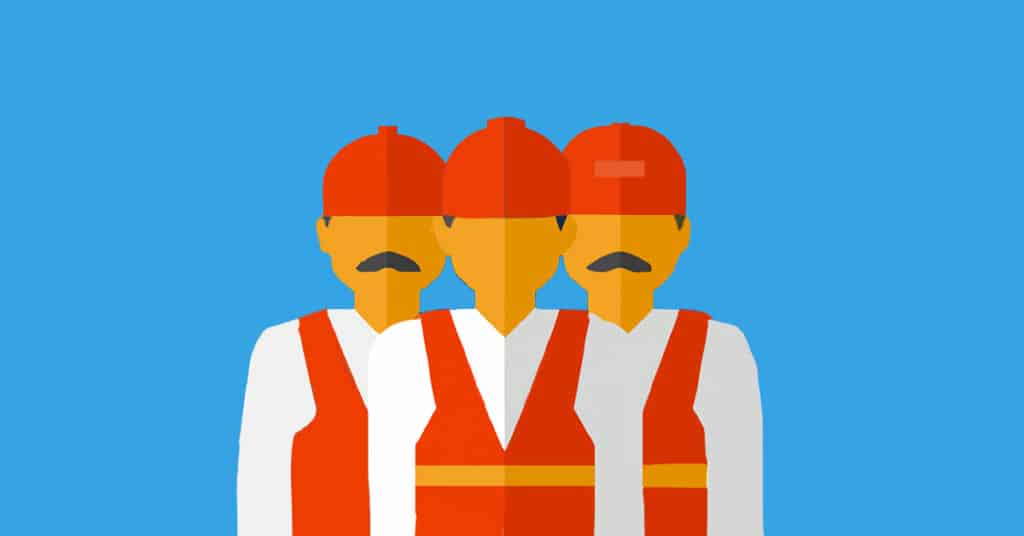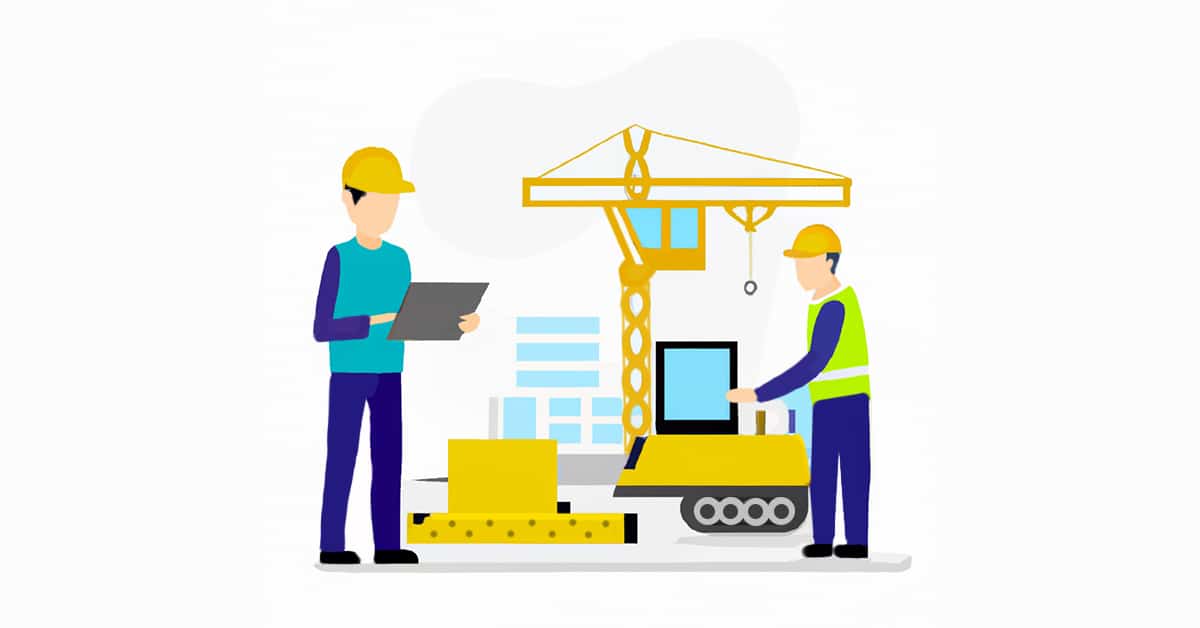Did you know that the construction output in the U.S. is expected to reach $1.7 trillion by 2027? Despite its immense growth, construction management companies are the glue that holds this industry together.
But what exactly are construction management companies, and what do they do?
In short, a construction management company is a professional firm that specializes in overseeing and managing construction projects from start to finish.
These companies act as the central point of contact, coordinating various aspects of the project, including planning, budgeting, scheduling, and execution. Their primary goal is to ensure the successful completion of construction projects within the specified time frame and budget while maintaining quality standards.
In this article, we’ll uncover the purpose and significance of construction management companies, as well as highlight the top ten best companies in the industry right now.
An Introduction to Construction Management Companies
A construction management company plays a vital role in the construction industry by overseeing various aspects of a construction project.
They collaborate with architects, engineers, and stakeholders to develop comprehensive project plans and designs, ensuring compliance with permits, safety regulations, and environmental considerations.
Construction management companies provide accurate cost estimates and budgeting, assist in contractor selection and management through competitive bidding processes, and develop detailed construction schedules to keep the project on track.
They implement quality control measures, assess and mitigate risks, and serve as the primary communication channel between stakeholders, providing regular progress updates and fostering effective collaboration among team members.
General Contractors vs. Construction Management Companies
Both general contractors and construction management companies play essential roles in the construction industry, but their responsibilities and approaches vary significantly.
🔨 General Contractors: The Builders
General contractors are the builders of the construction world. They are responsible for the hands-on execution of the project, overseeing the construction process, and managing subcontractors.
Direct Construction Focus
General contractors primarily focus on the physical construction aspects of the project.
They manage the construction site and ensure that the project is completed according to the plans and specifications.
Subcontractor Coordination
General contractors handle the hiring and coordination of subcontractors, such as electricians, plumbers, and carpenters.
They ensure that each trade is scheduled properly and that work progresses smoothly.
Bid-Based Projects
General contractors typically engage in bid-based projects, where they submit competitive bids to secure construction contracts.
They estimate the project’s cost, submit a bid proposal, and if successful, become responsible for executing the project.
💼 Construction Management Companies: The Project Orchestrators
In contrast to general contractors, construction management companies take a broader and more strategic approach to project management.
Comprehensive Project Oversight
They are involved from the earliest stages of a project.
They oversee the entire construction process, starting with pre-construction planning and continuing through design, procurement, and construction. Their holistic approach ensures seamless coordination and integration of all project elements.
Owner Representation
Construction management companies act as advocates for the project owner, representing their best interests throughout the entire construction process.
They provide expertise and ensure that the project aligns with the owner’s vision, budget, and timeline.
Transparent Communication
These companies excel in fostering open and transparent communication among all project stakeholders.
They keep the owner informed about project progress, potential issues, and any necessary adjustments, maintaining a strong working relationship throughout the construction process.
Services Offered by Construction Management Companies
When engaging with a construction management company, owners can expect a comprehensive suite of services that cover various aspects of the construction project.
Construction management companies oversee and manage the entire construction process from start to finish.
1. Project Planning and Design Coordination 📋
Construction management companies collaborate with architects, engineers, and other stakeholders to develop a comprehensive project plan that aligns with the owner’s vision.
Feasibility Studies
Construction management companies conduct thorough feasibility studies to assess the viability of the project.
They evaluate factors such as site conditions, zoning requirements, and potential constraints to provide an accurate assessment of the project’s potential success.
Design Coordination
These companies work closely with architects and engineers to ensure that the project design meets the owner’s requirements.
They facilitate communication, provide valuable input, and address any design-related challenges that may arise.
Permitting Assistance
Construction management companies guide owners through the complex process of obtaining necessary permits and approvals.
They have in-depth knowledge of local regulations and can help navigate the bureaucratic maze, ensuring compliance and avoiding delays.
2. Budgeting and Cost Control 💰
Effective budgeting and cost control are crucial for the success of any construction project. Construction management companies bring their expertise to the table to help owners manage costs efficiently.
Cost Estimation
These companies conduct thorough cost estimations to provide owners with accurate projections.
They consider various factors, such as labor, materials, equipment, and overhead costs, to develop a comprehensive budget.
Value Engineering
Construction management companies analyze the project’s design and specifications to identify opportunities for cost savings without compromising quality.
They propose alternative materials, methods, or design modifications that offer better value for money.
Cost Monitoring and Control
Throughout the project, construction management companies closely monitor costs and ensure that expenditures remain within budget.
They implement effective cost control measures and provide regular reports to keep owners informed.
3. Scheduling and Project Timeline Management 📅
Construction projects require careful scheduling to ensure timely completion. Construction management companies excel in developing realistic project schedules and overseeing the execution.
Detailed Scheduling
These companies create comprehensive construction schedules that outline the timeline for each activity.
They consider factors such as dependencies, resource availability, and weather conditions to develop realistic timelines.
Milestone Tracking
Construction management companies monitor progress against established milestones.
They proactively address any delays or bottlenecks, ensuring that the project stays on track.
Coordination with Subcontractors
Effective coordination with subcontractors is crucial for timely project completion.
Construction management companies facilitate seamless communication, schedule coordination meetings, and resolve conflicts that may arise between various trades.
4. Quality Control and Assurance 🧪
Construction management companies prioritize quality control and implement rigorous measures to ensure that the project meets or exceeds expectations.
Inspections and Testing
These companies conduct regular inspections to monitor construction quality.
They also perform quality assurance tests, such as material strength testing or building envelope inspections, to identify any deficiencies and take corrective actions.
Compliance with Regulations
Construction management companies ensure that the project complies with building codes, safety regulations, and environmental standards.
They facilitate inspections by relevant authorities and address any compliance issues promptly.
Warranty Management
After the project’s completion, construction management companies assist owners in managing warranty claims and addressing any defects that may arise.
They work closely with contractors to ensure timely resolution and owner satisfaction.
Typical Projects and Delivery Methods
Construction management companies have the expertise to handle a wide range of projects across various sectors. Whether it’s commercial, residential, industrial, or infrastructure projects, these companies bring their knowledge and skills to ensure the following projects are delivered successfully.
Project Types
🏢 Commercial
- Office Buildings: From high-rise towers to small office complexes.
- Retail Centers: Including shopping malls, strip malls, and individual retail outlets.
- Hospitality Establishments: Including hotels, resorts, and restaurants.
🏠 Residential
- Single-Family Homes
- Multi-Family Residential Buildings: Including apartment buildings, condominiums, and townhouses.
- Housing Developments
🏭 Industrial
- Manufacturing Facilities: Including factories and production facilities.
- Warehouses and Distribution Centers
- Power Plants and Utilities: Including power plants, water treatment facilities, and other utility infrastructure.
🌉 Infrastructure
- Roads and Bridges: Including roads, highways, bridges, and tunnels.
- Public Buildings and Facilities: Including schools, hospitals, community centers, and government facilities.
- Water and Wastewater Projects: Including water treatment plants, sewage systems, and other water infrastructure.
Delivery Methods
Construction management companies employ various project delivery methods to ensure efficient and successful project execution. These methods determine the contractual relationships among project stakeholders and the sequence of project activities.
🏗️ Design-Bid-Build (DBB)
Design-Bid-Build is a traditional project delivery method that involves sequential phases.
During the design phase, the owner hires an architect or design professional to develop the project’s design.
In the bid phase, the construction management company assists the owner in soliciting competitive bids from general contractors based on the completed design.
Once a contractor is selected, the construction management company oversees the build phase, ensuring that the construction process adheres to the design and specifications.
🏗️ Design-Build (DB)
Design-Build is a collaborative project delivery method that emphasizes close collaboration between the owner, construction management company, and design professionals.
During the Design-Build phase, the owner hires a construction management company that works in partnership with architects, engineers, and other design professionals from the project’s inception.
This approach enables concurrent design and construction activities, streamlining the process as the construction management company takes responsibility for both the design and construction aspects of the project.
💼 Construction Manager at Risk (CMAR)
Construction Manager at Risk is a project delivery method that incorporates risk management throughout the construction process.
During the pre-construction phase, the construction management company collaborates with the owner and design professionals, providing input on design decisions and identifying potential risks.
Once the design is finalized, the construction management company provides a Guaranteed Maximum Price (GMP), committing to complete the project within a specified budget.
⚖️ Construction Management Multi-Prime (CMMP)
Construction Management Multi-Prime is a project delivery method that entails coordinating multiple prime contractors for different aspects of the project.
The construction management company oversees and manages these prime contractors, ensuring effective collaboration and coordination among them to synchronize their work.
This approach streamlines the construction process and enhances project integration.
🤝 Integrated Project Delivery (IPD)
Integrated Project Delivery (IPD) prioritizes collaboration and shared responsibility among all project stakeholders.
With early collaboration, the owner, construction management company, architects, engineers, and other stakeholders work together from the project’s inception.
IPD fosters a collective mindset, where risks and rewards are shared, creating a sense of partnership and mutual accountability among the stakeholders.
💼 Public-Private Partnerships (PPP or P3)
Public-Private Partnerships (PPPs) facilitate collaboration between the public sector and private entities for the development and delivery of public projects.
Through shared responsibility, the public sector and private entities collaborate on financing, construction, and operation.
Construction management companies play a vital role in leveraging their project management and construction expertise to complement the capabilities of the public sector in PPPs.
Key Roles and Responsibilities of Construction Management Companies
Construction management companies take on a range of important roles and responsibilities to ensure the successful execution of construction projects.
Their expertise and dedication contribute to efficient project delivery, adherence to quality standards, and overall client satisfaction.
1. Collaborating with Stakeholders 📱
Construction management companies work closely with owners, architects, engineers, and other stakeholders to develop a comprehensive project plan.
They ensure that project objectives, timelines, and budget parameters are clearly defined.
In addition, construction projects involve various stakeholders beyond architects, engineers, and contractors. Construction management companies also coordinate with the following stakeholders.
Regulatory Authorities
They collaborate with local regulatory authorities to ensure compliance with building codes, permits, and other regulatory requirements. Construction management companies facilitate inspections and address any compliance issues that may arise.
Owners and Clients
These companies act as advocates for the owners and clients throughout the construction process. They maintain open lines of communication, provide regular updates, and address any concerns or requests promptly.
Community and Public Entities
Construction management companies engage with the community and public entities when working on public projects. They ensure effective communication, address community concerns, and maintain positive relationships.
2. Ensuring Project Quality 🧪
Construction management companies are committed to upholding high-quality standards throughout the construction process.
Collaboration with Inspectors and Testing Agencies
Construction management companies work closely with inspectors and testing agencies to ensure compliance with building codes, safety regulations, and quality standards.
They facilitate inspections and coordinate necessary testing.
Addressing Deficiencies
If any deficiencies are identified during inspections or quality assurance testing, construction management companies take prompt action to address and rectify them.
They work closely with contractors and subcontractors to ensure that the necessary corrections are made to maintain project quality.
3. Managing Timelines ⏰
Construction projects require careful time management to meet project milestones and ensure timely completion.
Detailed Project Scheduling
These companies develop comprehensive project schedules that outline the sequence of activities and deadlines.
They consider dependencies, resource availability, and potential risks to create realistic timelines.
Progress Monitoring
Construction management companies closely monitor project progress, tracking the completion of activities against the established schedule.
They proactively identify and address any delays or bottlenecks that may arise during construction.
Coordination and Communication
Effective coordination and communication among stakeholders are essential for timeline management.
Construction management companies facilitate coordination meetings, address scheduling conflicts, and keep all parties informed of progress and changes.
4. Adhering to Budget Constraints 💼
Staying within budget is critical for the success of construction projects.
Accurate Cost Estimation
These companies conduct thorough cost estimations, considering factors such as labor, materials, equipment, and overhead costs.
They provide owners with accurate projections to support informed decision-making.
Cost Monitoring and Control
Throughout the project, they closely monitor costs, tracking expenditures against the budget.
They implement effective cost control measures, address cost overruns promptly, and provide transparent financial reporting to the owner.
Benefits of Hiring a Construction Management Company
When embarking on a construction project, hiring a construction management company can make a significant difference in its success. These companies bring expertise, experience, and a range of valuable benefits to the table.
Expert Project Management 🌟
Construction management companies specialize in project management and bring a wealth of knowledge and experience to the table.
Efficient Project Planning
They develop comprehensive project plans, ensuring that all aspects of the project are well-coordinated and aligned with the owner’s vision.
Effective Resource Management
Construction management companies optimize resource allocation, ensuring that labor, materials, and equipment are efficiently utilized.
Proactive Problem Solving
They anticipate potential challenges and proactively develop strategies to mitigate risks, minimize disruptions, and keep the project on track.
Timely Decision-Making
Construction management companies facilitate prompt decision-making, providing owners with the information and options necessary to make informed choices.
Cost and Time Savings 📊
Construction projects often face budget and time constraints.
Bid Management
Construction management companies ensure competitive bidding, selecting qualified contractors who provide quality work at competitive prices.
Timely Completion
With their expertise in scheduling and coordination, construction management companies work diligently to meet project milestones and deliver the project on time or ahead of schedule.
Experienced Supervision
With their experienced personnel, construction management companies oversee all on-site activities, ensuring that work is performed to the highest standards.
Effective Risk Management 🛡️
Construction projects are inherently exposed to various risks. Construction management companies excel in effective risk management through the following practices.
Proactive Risk Assessment
They identify potential risks associated with the project and develop strategies to mitigate them. By addressing risks early on, they minimize their impact on the project.
Contingency Planning
Construction management companies establish contingency plans to deal with unforeseen circumstances. By having robust contingency measures in place, they can respond effectively to unexpected events and mitigate their consequences.
Handling Complex Construction Projects 🏗️
Construction projects can be intricate and multifaceted, requiring careful management and coordination. Construction management companies have the experience to tackle complex projects effectively.
Technical Expertise
These companies possess in-depth knowledge of construction methodologies, materials, and techniques. Their technical expertise enables them to address complex challenges and deliver high-quality results.
Multidisciplinary Coordination
Construction management companies excel at coordinating various trades, subcontractors, and suppliers involved in complex projects. Their experience in managing diverse stakeholders ensures seamless collaboration and minimizes coordination issues.
Streamlined Project Execution
With their experience in project planning and scheduling, construction management companies can anticipate potential obstacles and proactively develop strategies to overcome them. Their streamlined approach ensures projects progress smoothly, even in complex scenarios.
Navigating Regulatory Requirements ⚖️
The construction industry is subject to a multitude of regulations and permits. Navigating these requirements can be daunting for owners. Construction management companies offer expertise in regulatory compliance.
Knowledge of Building Codes and Standards
These companies stay up-to-date with the latest building codes, safety regulations, and industry standards. They ensure that construction projects adhere to these requirements, mitigating the risk of non-compliance and associated penalties.
Environmental Considerations
As sustainability becomes increasingly important, construction management companies are well-versed in environmental regulations and practices. They ensure projects adhere to environmental standards, promoting sustainable construction practices.
Top 10 Construction Management Companies for 2023
Company | Expertise |
Defense & Nuclear Security, Environmental Cleanup & Management, Manufacturing & Technology | |
Commercial, Healthcare, Education, Sports & Entertainment | |
Energy, Chemicals, Infrastructure | |
Commercial, Infrastructure, Residential | |
Aerospace, Defense, Transportation, Water | |
Design & Consulting, Construction Services, Management Services | |
Commercial, Civil Infrastructure, Industrial | |
Healthcare, Education, Commercial, Renewable Energy | |
Commercial, Civil Infrastructure, Residential | |
Commercial, Healthcare, Education |
When selecting a construction management company for your project, it’s crucial to consider certain factors to ensure quality and professionalism. Here are some key points to keep in mind.
🏆 Accreditation and Industry Recognition
Working with accredited construction management companies is essential. Look for companies that have achieved industry certifications and recognition, such as the following.
Accreditation
Check if the company is accredited by reputable organizations like the Construction Management Association of America (CMAA) or the American Institute of Constructors (AIC).
Awards and Recognition
Consider companies that have received accolades and recognition for their outstanding work in the industry.
📚 Expertise and Track Record
Evaluate the expertise and track record of construction management companies.
Relevant Experience
Assess if the company has experience in managing projects similar to yours in terms of size, complexity, and industry sector.
Portfolio of Successful Projects
Review their past projects to gauge their ability to deliver successful outcomes. Consider factors like on-time completion, adherence to budgets, and overall client satisfaction.
💼 Project Management Approach
Consider the project management approach of construction management companies.
Clear Communication
Effective communication is vital for successful project execution. Ensure that the company emphasizes open and transparent communication with all stakeholders.
Proven Processes
Evaluate if the company has established project management processes and tools to ensure efficient coordination, timely decision-making, and effective risk management.
🌟 Client Reviews and Testimonials
Take into account the feedback and testimonials from past clients.
Client Satisfaction
Read reviews and testimonials to gauge the level of client satisfaction with the company’s performance.
References
Request references and speak with previous clients to gain insights into their experience working with the company.
The Role of Technology in Construction Management Companies
Technology has revolutionized the construction industry, empowering construction management companies with innovative solutions.
- Construction project management software provides a centralized space for project teams to access and share project information and documents.
- BIM software and virtual reality (VR) enable stakeholders to visualize 3D models, promoting design coordination and clash detection.
- Construction scheduling software ensures efficient management of project timelines and deliverables.
- Daily reporting tools and analytics offer valuable insights for informed decision-making and accurate documentation.
Try Workyard’s Construction Management Software
In the fast-paced construction industry, staying on top of crew hours and project costs is crucial for successful project management. That’s where Workyard’s construction management software comes into the picture.
Workyard offers a range of features designed to streamline work processes, enhance efficiency, and improve project outcomes. For example:
🕒 GPS Time Tracking and Workforce Monitoring
Workyard’s GPS time tracking feature enables construction managers to accurately track employee hours, locations, and mileage, ensuring transparency and accountability.
💰 Accurate Labor Cost Tracking
Workyard simplifies the process of accurately tracking labor costs by allowing workers to tag their hours to specific projects and tasks.
This enables construction managers to gain insights into labor costs in real-time, ensuring that projects stay within budget and helping owners make informed financial decisions.
💼 Integrations and Easy-to-Use Interface
Workyard is designed to integrate seamlessly with other essential systems used in construction management, such as payroll and accounting software.
In addition to its powerful features, Workyard offers a user-friendly interface that is intuitive and easy to navigate. Its straightforward design allows construction managers to quickly adopt and leverage the software, saving time and increasing productivity.





